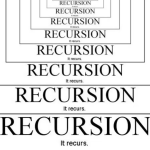NULL是一个“清单常量”(#defineC 中的一个),它实际上是一个整数,可以通过隐式转换分配给指针。
nullptr是表示自定义类型值的关键字,可以转换为指针,但不能转换为整数。
int i = NULL; // OK
int i = nullptr; // error - not a integer convertible value
int* p = NULL; //ok - int converted into pointer
int* p = nullptr; // ok 这对于解决泛型编程中可能出现的歧义很重要:
假设您有两个重载函数:
void func(int x);
void func(int* x); 现在,如果您调用func(NULL),您实际上是在调用……1)变体,NULL成为int. 但是func(nullptr)会调用2)变体,而nullptr不是int.
为避免调用一个函数而不是另一个函数的风险,0如果需要整数和nullptr指针,请始终使用。
一些评论指出 NULL 可以是(void*)0.
尽管这可以在 C 中完成,但标准并不保证确实使用了这样的定义。C 与 C++ 有点不同:
从注释中可以看出:
在 C 中,宏NULL可能具有 type void*,但在 C++ 中是不允许的。
问题是关于 C++,而不是 C。
理解 C++ 中的 nullptr
考虑以下显示 NULL 问题的 C++ 程序(需要 nullptr)
// C++ program to demonstrate problem with NULL
#include <bits/stdc++.h>
using namespace std;
// function with integer argument
void fun(int N) { cout << "fun(int)"; return;}
// Overloaded function with char pointer argument
void fun(char* s) { cout << "fun(char *)"; return;}
int main()
{
// Ideally, it should have called fun(char *),
// but it causes compiler error.
fun(NULL);
}
输出:
16:13: error: call of overloaded 'fun(NULL)' is ambiguous
fun(NULL);
上面的程序有什么问题?
NULL 通常定义为 (void *)0,并且允许将 NULL 转换为整数类型。所以函数调用 fun(NULL) 变得模棱两可。
// This program compiles (may produce warning)
#include<stdio.h>
int main()
{
int x = NULL;
}
nullptr 是如何解决问题的?
在上面的程序中,如果我们用 nullptr 替换 NULL,我们得到的输出是“fun(char *)”。
nullptr 是一个关键字,可以在所有需要 NULL 的地方使用。与 NULL 一样,nullptr 可以隐式转换并且与任何指针类型相当。与 NULL 不同,它不能隐式转换或与整数类型相比较。
// This program does NOT compile
#include<stdio.h>
int main()
{
int x = nullptr;
}
输出:
Compiler Error
附带说明一下,nullptr 可以转换为 bool。
// This program compiles
#include<iostream>
using namespace std;
int main()
{
int *ptr = nullptr;
// Below line compiles
if (ptr) { cout << "true"; }
else { cout << "false"; }
}
输出:
false
当我们比较两个简单指针时,有一些未指定的事情,但是 nullptr_t 类型的两个值之间的比较被指定为,通过 <= 和 >= 进行比较返回 true,通过 < 和 > 进行比较返回 false,并且通过 == 将任何指针类型与 nullptr 进行比较和 != 如果分别为 null 或非 null,则返回 true 或 false。
// C++ program to show comparisons with nullptr
#include <bits/stdc++.h>
using namespace std;
// Driver program to test behavior of nullptr
int main()
{
// creating two variables of nullptr_t type
// i.e., with value equal to nullptr
nullptr_t np1, np2;
// <= and >= comparison always return true
if (np1 >= np2)
cout << "can compare" << endl;
else
cout << "can not compare" << endl;
// Initialize a pointer with value equal to np1
char *x = np1; // same as x = nullptr (or x = NULL
// will also work)
if (x == nullptr)
cout << "x is null" << endl;
else
cout << "x is not null" << endl;
return 0;
}
输出:
can compare x is null





